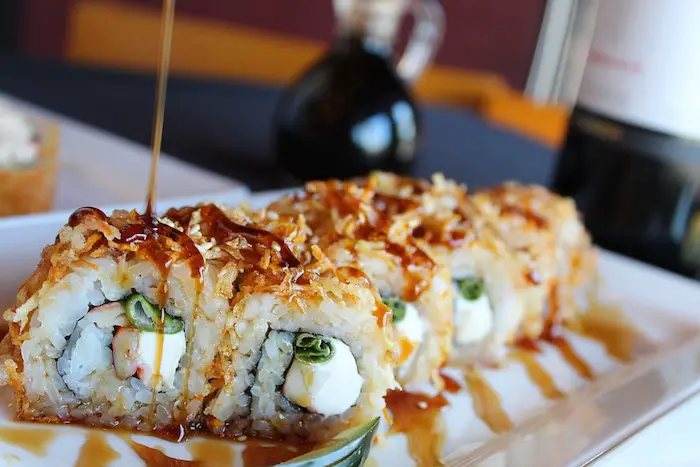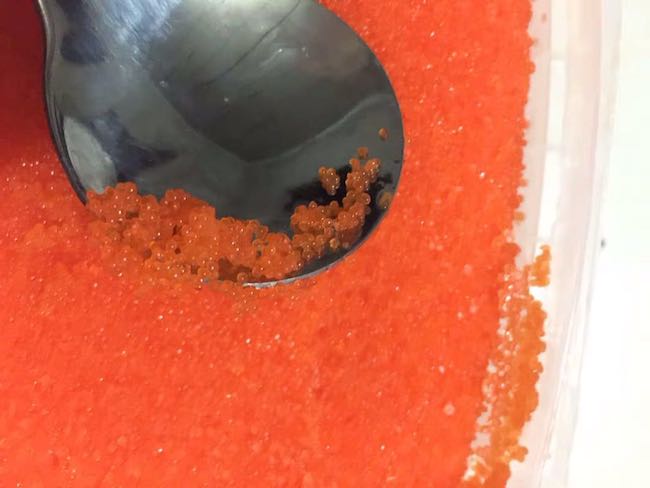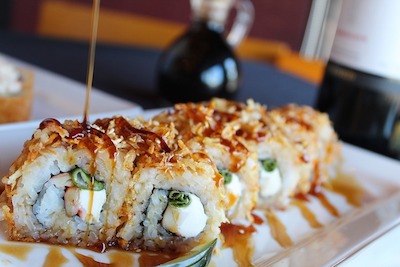We are reader supported. When you purchase through links on our site, we may earn an affiliate commission. Also, as an Amazon affiliate, we earn from qualifying purchases.

Sushi is supposed to be healthy. However, a lot of research has been conducted to determine whether certain sushi ingredients are harmful. One outstanding concern is that sushi may contain monosodium glutamate (MSG), a common ingredient in foods and one that is tied to a wide range of negative health side effects.
Yes, it is true that most sushi contains MSG. It occurs naturally in some instances and in other cases it is included as an additive. However, there are some high-end sushi restaurants that go to great lengths to ensure that their sushi is free of MSG.
MSG is Unavoidable in Sushi in Most Cases
The reason why MSG is unavoidable in most sushi is that it is a naturally occurring substance in everything that has protein. In sushi’s case, this means that there is MSG is soy sauce since it is essentially fermented soy protein. Nori, the popular seaweed used in sushi, also contains proteins and registers low levels of MSG. In other cases, however, MSG is added as an additive especially in most low-end sushi restaurants. Sushi ingredients that contain MSG include:
Wasabi
Most of the wasabi served in sushi restaurants is an imitation of the real deal. Authentic wasabi like this, which is sourced from the roots of Wasabia Japonica, is hard to find. Natural wasabi is healthy and contains antibiotic and anti-inflammatory properties. However, you will only find it in some high-end sushi restaurants, and at a higher cost.

The wasabi served in most sushi restaurants is a mixture of mustard, horseradish powder, and green food coloring. Tests have found traces of MSG in most artificial wasabi. However, artificial wasabi made of horseradish, turmeric, and spirulina does not contain MSG.
Seaweed Salad
Seaweed is an integral ingredient in sushi. It is supposed to be healthy and contains nutrients such as minerals, vitamins, and iodine. However, it may also contain unhealthy substances, including MSG, depending on where it was harvested and how it was prepared – ideally, seaweed should be harvested from clean, non-polluted water.
Unfortunately, most seaweed salad is pre-made and packaged in distribution companies. It contains additives for preservation purposes, and most of it is harvested from polluted waters. It has been shown to contain several harmful substances including MSG.
Pickled Ginger
Pickled Ginger like this on Amazon is an essential ingredient in sushi as it serves as a palate cleanser. In its natural form ginger is healthy and is effective against conditions
Fish Roe / Seasoned Caviar

Fish roe, or seasoned caviar, is often served as a side-dish with sushi. It certainly is delicious, but it often contains additives that include MSG.
Imitation Crab
Imitation crab is an essential filling in America’s most popular type of sushi: the California roll (see recipe). As the name suggests, there is nothing authentic about imitation crab. It is made from a fish called the Golden Threadfin Bream. In other cases, it may consist of a blend of different fish meats. It also contains additives designed to imitate the taste of authentic crab meat. These additives include MSG.
Negative Effects of MSG
The FDA classifies MSG as generally safe. It is a commonly used additive in a wide range of foods. A lot of controvers has risen from the wide-spread use of MSG and the FDA’s approval. It is associated with several mild health effects that include nausea, headache, numbness, flushing, and sweating. It has also been linked to more serious effects including unusual heartbeat rates, facial tightness, chest pain, and general body weakness.
MSG Should Not Dissuade You from Eating Sushi
As mentioned, MSG is unavoidable in sushi as it is also present in natural ingredients such as nori and soy sauce. So, does this mean that you should give up on sushi? Certainly not! If this is the case, then you should consider ditching many other foods, both processed and organic, as MSG is a common ingredient in food.
As mentioned, the FDA considers MSG to be a safe substance. In fact, it is an essential additive that helps keep food fresh and hence safe for consumption. What’s more, the effects of MSG are mild at best and most people do not even notice it – they become pronounced when MSG is consumed in high amounts. The average serving of sushi contains a very small amount of MSG, so this should not be a cause for concern.
Related Questions
Q: Is the concern about sushi containing MSG warranted?
A: Yes, the concern about sushi containing MSG is warranted, but there is no reason to worry. Sushi contains very small amounts of MSG, and the average serving should not arouse any of the aforementioned side effects.
Q: Is there a way to avoid MSG in sushi?
A: The only way to avoid MSG in sushi would be excluding some key ingredients including soy sauce and nori as it is a naturally occurring substance in these ingredients. However, excluding such key ingredients would beat logic as they make up the essence of sushi.
Q: Is there a way of minimizing the amount of MSG in sushi?
A: Yes, in most cases MSG in sushi comes from additives and inauthentic ingredients. The best way to minimize the amount of MSG in your sushi is by using all-natural ingredients. For instance, source natural wasabi and nori even if it will cost you more. You should also consider preparing your sushi yourself or go to high-end restaurants and insist on natural ingredients.
Q: Have there been any reported cases of people falling ill because of eating sushi?
A: Yes, there are cases where people have fallen ill as a result of eating sushi, but none of them is directly linked to MSG. Most of these cases have been associated with allergic reactions to some of the ingredients in sushi. Additionally, over-indulging in sushi is not recommended.

